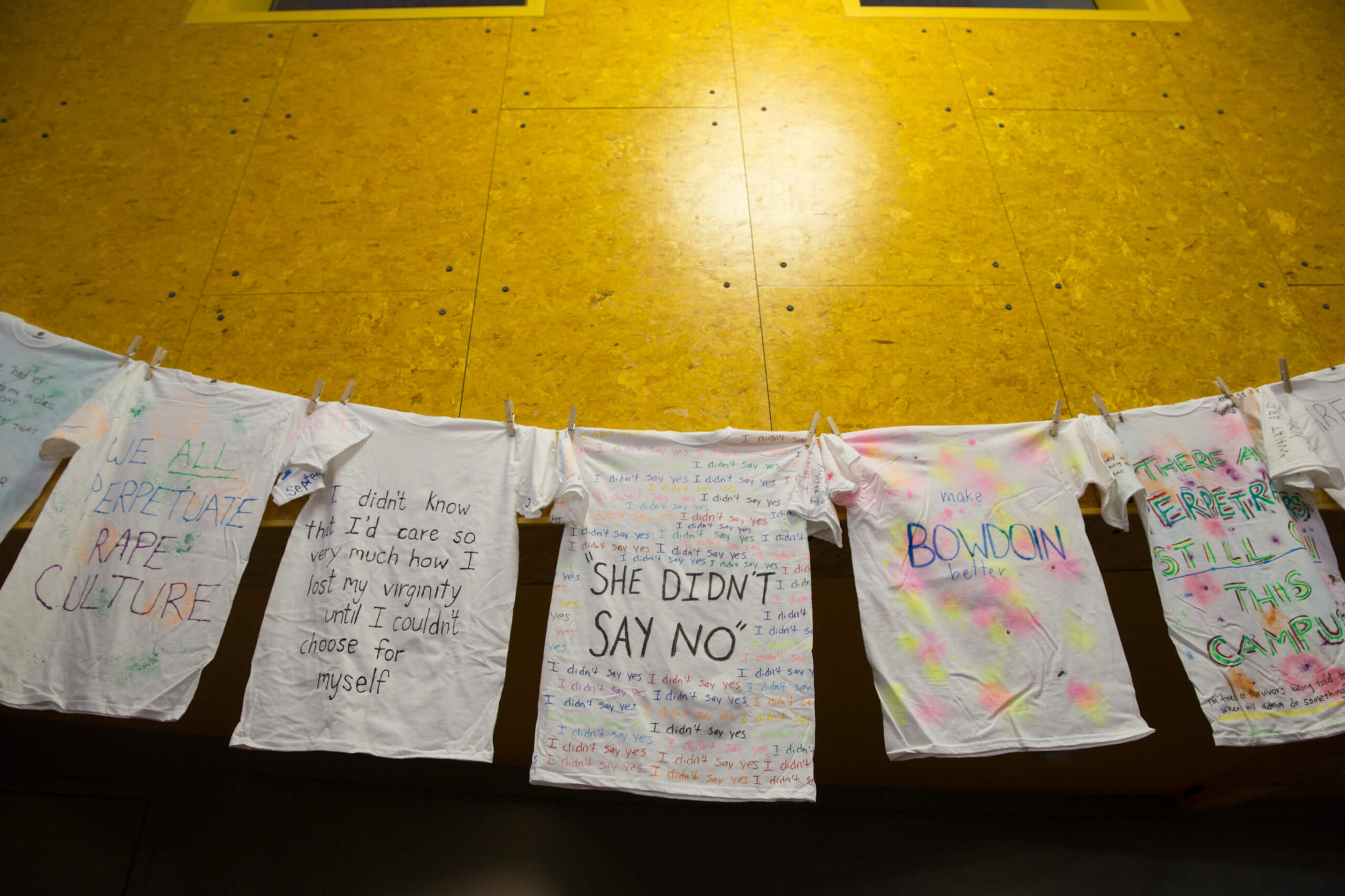Sexual Assault Awareness Month: April and Beyond
April 26, 2019
 Ann Basu
Ann BasuFor the first time since Sexual Assault Awareness Month (SAAM) became nationally recognized in 2001, several student groups collaborated on programming this April. While the month provided students with the opportunity to learn about supporting survivors of sexual assault and align themselves with national movements, organizers say that outreach continues to pose a challenge.
According to Lisa Peterson, associate director of gender violence prevention and education, the College has not organized programming for SAAM in previous years due to concerns from some students that doing so would relegate conversation about sexual assault prevention to a single month. This year, though, students felt differently.
“We’ve avoided having a themed month, but we also heard students talking about the alliance with national movements,” said Peterson. “I respect that there’s different perspectives on themes, but I feel really confident that this is the right direction for right now.”
Peterson worked with students and faculty from Safe Space, Bowdoin Healthy Relationships and other student groups to organize events for SAAM, including film screenings, discussions around art and media and active bystander training, which highlighted pre-existing programming that occurs throughout the year.
“It’s really giving [sexual assault] that themed month that allows it to rise in significance and to heighten [awareness] to that level for everyone on campus,” Peterson said.
The event that garnered the largest turnout was a screening of the 2018 documentary film “Roll Red Roll,” directed by Nancy Schwartzman, which chronicled the story of a rape of a female high school student in Ohio by members of the school’s football team in 2012. However, not all events were as well-attended. Peterson’s smaller workshops, which aimed to give students basic tools for supporting survivors of sexual assault, did not draw as many participants as they had in previous years.
“I think there were more people than I was anticipating, but I think we still haven’t been able to reach our target audience,” said Seneca Ellis ’22, who participated in the Gender Violence Prevention and Education Leadership Institute, a series of courses led by Peterson throughout the year. “I think the issue we have is that the people who come to the events are people who are already passionate about the issue, and it’s kind of like preaching to the choir.”
She noted that this would be a goal for campus leaders in future years.
“I think our biggest challenge going forward is going to be reaching out to people that wouldn’t necessarily come to these events on their own and try to bring them into the conversations.”
Peterson emphasized the importance of shared responsibility among all members of a community in preventing sexual assault and noted that the burden should not fall on survivors to share their stories and push people to engage.
“I think it’s important to make sure that students are well-prepared to hear disclosures from friends, feel really confident that they have the skills to provide a soft landing for that person and know the resources on campus,” said Peterson.
While Bowdoin has chosen to align itself with a national movement in recognizing SAAM in April, the College will continue to conduct programming throughout the year to raise awareness about sexual assault. For example, “Take Back the Night,” which is part of SAAM at many other schools, takes place at Bowdoin in late October.
To close SAAM next week, Peterson will discuss representations of gender violence in popular media, such as “Gossip Girl” and “Riverdale,” in Searles Science Building. For future events, Peterson hopes to bring in representatives from agencies working to prevent sexual assault to speak about their efforts and bring in guests to lecture about scientific research on sexual assault prevention.

Comments
Before submitting a comment, please review our comment policy. Some key points from the policy: